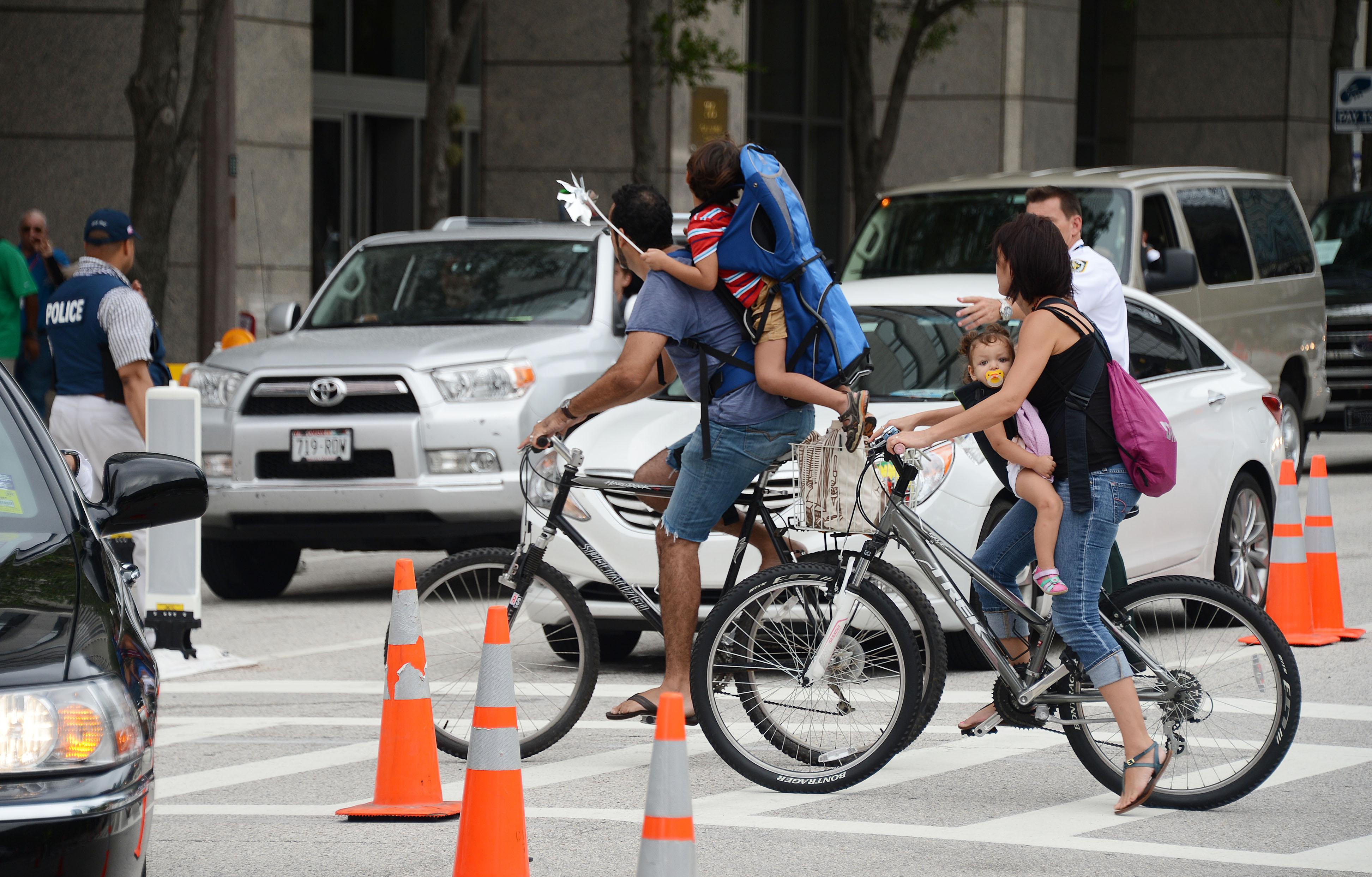Tampa police seem to have an obsession with cyclists, writing 2,504 bike tickets over the past three years. And looking at the data it would seem blacks are particularly bad bicyclists, receiving eight out of every 10 tickets, according to an investigation by the Tampa Bay Times, even though they make up about a quarter of the city’s population. Analyzing the tickets awarded to bicyclists, the newspaper concludes that “Tampa police are targeting poor, black neighborhoods with obscure subsections of a Florida statute that outlaws things most people have tried on a bike, like riding with no light or carrying a friend on the handlebars.”
These violations are used as an excuse to stop and question bicyclists, with a particular focus on high-crime neighborhoods. Although the police say bike stops are part of a crime prevention strategy, the vast majority of tickets did not include arrests. And when they did, it was usually for a small amount of drugs or a misdemeanor, according to the Tampa Bay Times. The paper notes the actions are hardly a coincidence:
Internal police department records show a sustained effort to encourage bike stops as a means to reduce more serious crimes.
Officers get yearly “productivity reports,” calculating, in part, how many tickets they give. One personnel file detailed a “red grid patrol” in which officers are encouraged to “engage and identify offenders through street checks, bike stops and traffic stops.”
In another file, a supervisor told a new officer he should learn rarely used traffic statutes. The fact that he wasn’t familiar with them was noted as a “significant weakness” in his 2012 performance review. The next year, the new officer impressed his bosses with his “dramatic increase” in “self-initiated activity.”
Even if the stop doesn’t lead to a ticket it is often still a humiliating experience.
“It’s always the light, or to run your VIN number,” 31-year-old Anthony Gilbert said. “ ‘Let’s have your ID. Just stand in front of my cruiser.’ Now, you’re being humiliated. Your friend’s riding by. Your reverend might be riding by. Now, you’ve got to go to church. The pastor’s going to be like, ‘What happened, son?’ ”
